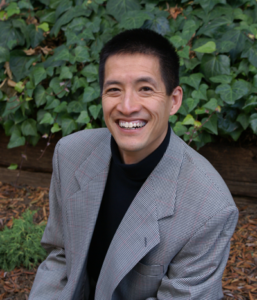
Tiger Profs?
Five years ago, Yale law professor Amy Chua published a controversial book, Battle Hymn of the Tiger Mother. According to Chua, there is a basic difference in parenting practices between those of Asian (particularly Chinese) cultural heritage and those of North American white cultures. The former, by assuming strength and resilience in children, set high expectations for and demand much from them; despite the risk of being “hated” at times by their own kids, these parents are relentless in pushing and challenging their children to develop their potential to the fullest degree possible. The latter, in contrast, tend to emphasize the need to affirm rather than challenge their children, because they believe their children to be fragile, brittle, and easily breakable. Instead of setting strict standards for their young ones to strive for and succeed, these parents are more likely to pamper, protect, and permit their children to “settle.” For Chua, the uncompromising insistence that most Asian parents place on their children, as opposed to their Caucasian counterparts’ undemanding indulgence of their offspring, is the reason behind the “Asian academic whiz kids” phenomenon in the United States. Simply put, “No pain, no gain” may well sum up Chua’s understanding of parenting, though she is also clear that children’s “gain” will involve a process of “pain” for both the children and their parents.
 Chua, of course, has been criticized for reinforcing certain cultural or racial stereotypes, such as that of the hard-working and hard-driving Asian who is hard on oneself and everybody else. She has also been criticized for advocating a parenting practice that puts so much pressure on or perhaps even demands perfectionism from children that is in fact damaging to their self-esteem and wellbeing.
Chua, of course, has been criticized for reinforcing certain cultural or racial stereotypes, such as that of the hard-working and hard-driving Asian who is hard on oneself and everybody else. She has also been criticized for advocating a parenting practice that puts so much pressure on or perhaps even demands perfectionism from children that is in fact damaging to their self-esteem and wellbeing.
While I never think a teacher can take the place of a parent, I think Chua’s book can raise some interesting questions also about teaching practices, especially given the current trend of grade inflation. What do we as teachers expect of our students? How hard am I—are you—willing to push students to help them develop and excel?
Chua suggests that our expectations for students are related to our assumptions about them as durable or delicate people. Better than what we assume is what we actually know about our students, since students in the same school or class, like children from the same family, are not all cut from the same cloth; they may have different temperaments, and they may find themselves facing various situations in their lives as students. What if I know how much employment and/or family responsibilities a particular student has to juggle alongside his or her academic pursuits? Should I adjust my expectations for Division 1 student-athletes whom I know to be tough-minded and strong-willed but obligated to or perhaps personally inclined to spend more of their daily hours on the practice field than on classroom assignments?
Without dismissing the importance of being humane and understanding or the reality of personal style and preference, I want to underscore our role as teachers, particularly as teachers of religion and theology, to teach our students not only academic content but also choice and responsibility. It is interesting to hear Chua’s two twenty-something daughters speaking out in January this year about how their upbringing has enabled them to be independent and dependable young adults as well as having relieved their “tiger mom” from becoming a “helicopter parent.” All of us need to have clear expectations and accountability to learn and keep learning about choice and responsibility.
I also had a seminary student who once told me that she, unlike most of her schoolmates, did not want any more classes with professors who basically just wanted to affirm students as “nice people.” Chua’s honest comment about risking being “hated” by her children as a “tiger mom” reveals that the affirmation of students as “nice people” by professors, to use my former student’s language, may in many ways be the professors’ own need to be affirmed as “nice.” This is not surprising, given the revealing emphasis on “likes” and “follows” in social media platforms like Facebook and Twitter. While it is understandable to want to be liked by students, being liked should never be the ultimate goal of a teacher.
I think it’s important to note that Chua is clear, at least after her book’s publication, that “tiger” tactics must be coupled or balanced with something else or something more. I have a former colleague of Asian ancestry with a ten-plus-page syllabus for his introductory class; he is tough—a tiger prof.?—and yet well loved by his students. In fact, he is known for keeping in touch with many students even after their graduation. One semester, he told me—no, taught me—something that I will never forget. I can no longer remember the context of that conversation, but it must have been something about student performance and grading when he said, “Benny, the easiest thing for a professor to do is to fail a student and call it done.” Then he went on to talk about the need to, without changing the grade or letting a student off the hook, continue showing concern for and working with a failing student.
Good teaching and learning require a balance of expectation and compassion, as well as accountability on the part of both teachers and students. It is not enough to be fiercely demanding of students in a tiger-like manner, one must also be fiercely loyal to her or his students by accompanying them in their journeys to learn and develop.